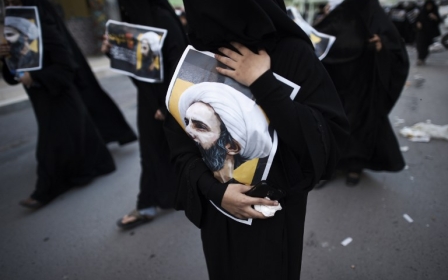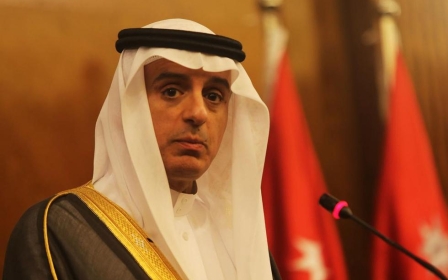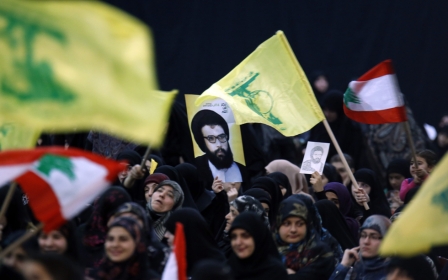Saudi could turn page if Iran changes policies: Foreign minister

Saudi Arabia and other Gulf monarchies could turn a page and build strong relations with Iran if it respects them and stops "meddling" in their affairs, Foreign Minister Adel al-Jubeir has said.
"If Iran changes its way and its policies, nothing would prevent turning a page and building the best relationship based on good neighbourliness, with no meddling in the affairs of others," he told reporters in Riyadh on Wednesday.
"There is no need for mediation" in such a case, said Jubeir.
Saudi Arabia severed all links with the Islamic republic in January after crowds attacked the kingdom's diplomatic missions in Iran in the wake of the execution of Shia cleric Nimr al-Nimr and 46 others.
Jubeir said relations with Tehran had deteriorated "due to the sectarian policies" followed by Shia-dominated Iran and "its support for terrorism and implanting of terrorist cells in the countries of the region".
"Iran is a neighbouring Muslim country that has a great civilisation and a friendly people, but the policies that followed the revolution of (Ayatollah Ruhollah) Khomeini have been aggressive," he said.
Jubeir was speaking after a meeting of Gulf foreign ministers and their counterparts from Jordan and Morocco.
In a joint statement, ministers meeting in Riyadh urged Iran to respect UN resolution 2231, which endorsed the nuclear deal and included curbs on ballistic missiles, as Tehran fired two more missiles on Wednesday.
The ministers "stressed the importance of implementing the Security Council Resolution 2231 concerning the nuclear deal, including what concerns ballistic missiles and other weapons," it said.
US Vice President Joe Biden said on Wednesday that the US would take action against Iran if the missile tests were confirmed.
In his comments, Jubeir also said that Lebanon was now run by Iran-backed Hezbollah and questioned why a Lebanese court released a Syria-linked former minister who is facing charges of having planned "terrorist" acts.
Michel Samaha's release "does not positively indicate that the army is independent of Hezbollah's influence," he said.
Riyadh and its Gulf Arab allies have stepped up sanctions against Hezbollah and its alleged leaders since 2013 in retaliation for its intervention in the Syrian war to support President Bashar al-Assad.
Saudi Arabia recently blocked $3 billion in military aid to Lebanon and urged its citizens to leave the country.
Asked about further Gulf sanctions against Hezbollah, Jubeir said the foreign ministers of the Gulf Cooperation Council had decided to look into measures that "would prevent Hezbollah from benefiting from GCC states".
Last month, Saudi Arabia froze the assets and prohibited dealings with three Lebanese nationals and four companies, in its latest action against Hezbollah.
New MEE newsletter: Jerusalem Dispatch
Sign up to get the latest insights and analysis on Israel-Palestine, alongside Turkey Unpacked and other MEE newsletters
Middle East Eye delivers independent and unrivalled coverage and analysis of the Middle East, North Africa and beyond. To learn more about republishing this content and the associated fees, please fill out this form. More about MEE can be found here.




